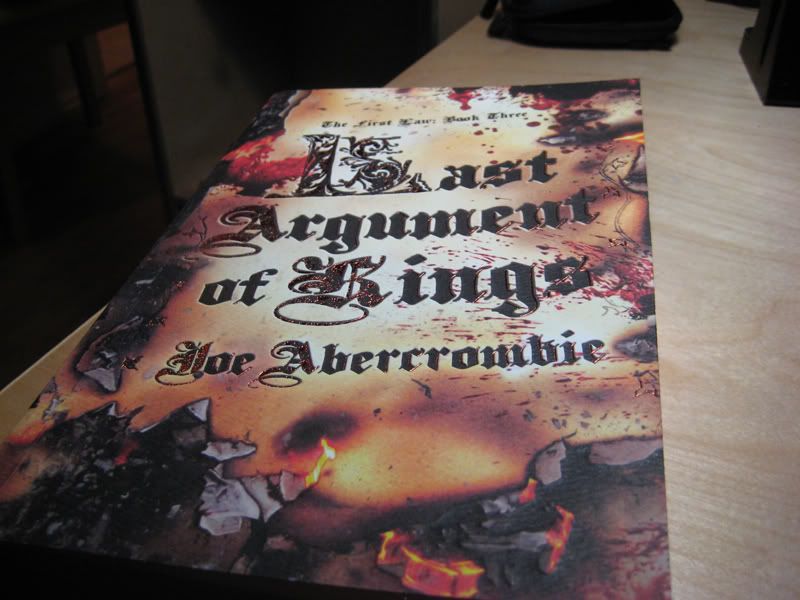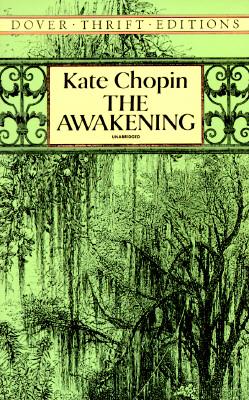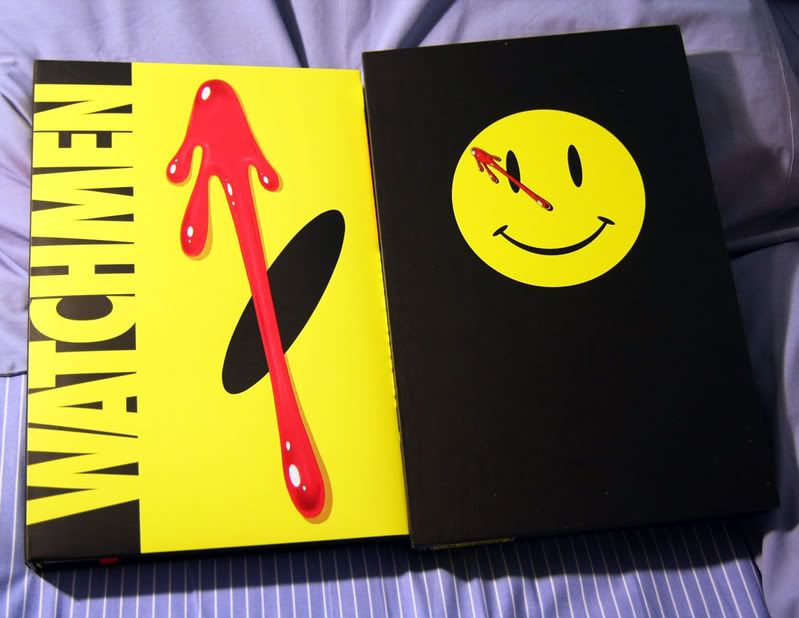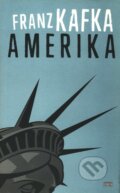-
Hey, guest user. Hope you're enjoying NeoGAF! Have you considered registering for an account? Come join us and add your take to the daily discourse.
You are using an out of date browser. It may not display this or other websites correctly.
You should upgrade or use an alternative browser.
You should upgrade or use an alternative browser.
What Are You Reading? - March '08 Edition
- Thread starter Eric WK
- Start date
I recently finished F. Paul Wilson's All The Rage, the fourth book in the Repairman Jack series and enjoyed it quite a bit. It's the usual scenario - Jack takes on a job and gets in over his head thanks to a supernatural element - but is well executed, has some fun moments (namely our hero thinking of imaginative ways to get revenge on a gangster), and progresses the background plot. I'm looking forward to reading the next book in the series, Hosts (which I found in great condition at a local used shop), in the not too distant future.

Meanwhile, I started in on Crystal Soldier by Sharon Lee and Steve Miller a few days ago. It's the first half of a two-book prequel to their popular Liaden series. After devouring Bujold's Vorkosigan novels, I found myself looking for something similar - character driven SF with a bit of romance thrown in - and found a recommendation for the Liaden books. They're not quite Bujold, but they are tremendous fun, set in a space opera future and detailing the history of a wealthy family of pilots and how they fight back against mysterious political forces attempting to destroy them. The characters are fun, the banter is witty, there's romance in heaps (with three books in the main sequence following the adventures of our heroic couple, with the other four detailing other members of the family who just happen to pair off over the course of each book), and for aliens you've gotta love the space turtles. No, seriously, the turtles are fantastic.
As mentioned, there are seven books in the main Liaden sequence, which more or less wraps up the basic storyline, and they're pretty terrifically entertaining. To give you an idea of their appeal, after three books the series quietly stopped for many years as they had mid-list sales but weren't exactly breakthrough success - but thanks to an obvious fan following on the internet the authors were able to bring back the series, first through a series of self-published chapbooks, then through Meisha Merlin (rest in peace), and finally via mass market editions through Ace. Are they up there with Bujold? No, but they're still a helluva lot of fun and come highly recommended.
As for the prequel, it's set far in the past and details how the couple that founded this particular family met. There's a threat of vast proportions menacing the galaxy that I'm sure will be dealt with at some point, but 100 pages in and it's been wrecked space ships, escape from a space port, and a very special tree. Yes, a tree. Look, it's like the turtle thing, okay? At any rate, I'm digging it and will report back after finishing both Crystal Solider and the follow-up, Crystal Dragon. Meanwhile, anyone interested in checking out the Liaden series should pick up a used copy of the out of print omnibus Partners in Necessity, or snag the Baen e-book edition of the first book in publication order, Agent of Change.
FnordChan

Meanwhile, I started in on Crystal Soldier by Sharon Lee and Steve Miller a few days ago. It's the first half of a two-book prequel to their popular Liaden series. After devouring Bujold's Vorkosigan novels, I found myself looking for something similar - character driven SF with a bit of romance thrown in - and found a recommendation for the Liaden books. They're not quite Bujold, but they are tremendous fun, set in a space opera future and detailing the history of a wealthy family of pilots and how they fight back against mysterious political forces attempting to destroy them. The characters are fun, the banter is witty, there's romance in heaps (with three books in the main sequence following the adventures of our heroic couple, with the other four detailing other members of the family who just happen to pair off over the course of each book), and for aliens you've gotta love the space turtles. No, seriously, the turtles are fantastic.
As mentioned, there are seven books in the main Liaden sequence, which more or less wraps up the basic storyline, and they're pretty terrifically entertaining. To give you an idea of their appeal, after three books the series quietly stopped for many years as they had mid-list sales but weren't exactly breakthrough success - but thanks to an obvious fan following on the internet the authors were able to bring back the series, first through a series of self-published chapbooks, then through Meisha Merlin (rest in peace), and finally via mass market editions through Ace. Are they up there with Bujold? No, but they're still a helluva lot of fun and come highly recommended.
As for the prequel, it's set far in the past and details how the couple that founded this particular family met. There's a threat of vast proportions menacing the galaxy that I'm sure will be dealt with at some point, but 100 pages in and it's been wrecked space ships, escape from a space port, and a very special tree. Yes, a tree. Look, it's like the turtle thing, okay? At any rate, I'm digging it and will report back after finishing both Crystal Solider and the follow-up, Crystal Dragon. Meanwhile, anyone interested in checking out the Liaden series should pick up a used copy of the out of print omnibus Partners in Necessity, or snag the Baen e-book edition of the first book in publication order, Agent of Change.
FnordChan
Keen said:
Keen, do you post on the Westeros boards, as well? I saw that photo of LAoK over there. I've just got a review copy of it which isn't nearly as pretty, so I was quite jealous!
Speaking of Last Argument of Kings, I just finished it up and absolutely adored it. One of the finest concluding volumes of a Fantasy trilogy available. Joe really knows how to bring a story to a close with a bang. You can find my more official (spoiler-free) review HERE.
I'm now reading The Dragons of Babel by Michael Swanwick. It's my first experience with the author, but I'm pretty impressed thus far. The narrative feels slightly at a distance, but it reminds me strongly of reading Fairy Tales as a kid. Good stuff.
Finished The New York Trilogy by Paul Auster a few days ago.

Enjoyed it a lot. Three strange, mysterious detective-tales. Feels very original, and not clichéd or predictable at all unlike so many other detective-stories. Don't open this one expecting a familiar plot.
Just started The Satanic Verses by Salman Rushdie.

If the start is anything to go by, the book is a verbal explosion just like his Midnight's Children. Rushdie is the most impressive wordsmith I know. His way with words is stunningly inventive and sure, and very, very funny. Haven't seen anything yet that can explain why this book became so dangerous, but then I'm not very versed in Islamic lore.

Enjoyed it a lot. Three strange, mysterious detective-tales. Feels very original, and not clichéd or predictable at all unlike so many other detective-stories. Don't open this one expecting a familiar plot.
Just started The Satanic Verses by Salman Rushdie.

If the start is anything to go by, the book is a verbal explosion just like his Midnight's Children. Rushdie is the most impressive wordsmith I know. His way with words is stunningly inventive and sure, and very, very funny. Haven't seen anything yet that can explain why this book became so dangerous, but then I'm not very versed in Islamic lore.
BenjaminBirdie
Banned
aidan said:Keen, do you post on the Westeros boards, as well? I saw that photo of LAoK over there. I've just got a review copy of it which isn't nearly as pretty, so I was quite jealous!
Speaking of Last Argument of Kings, I just finished it up and absolutely adored it. One of the finest concluding volumes of a Fantasy trilogy available. Joe really knows how to bring a story to a close with a bang. You can find my more official (spoiler-free) review HERE.
I'm now reading The Dragons of Babel by Michael Swanwick. It's my first experience with the author, but I'm pretty impressed thus far. The narrative feels slightly at a distance, but it reminds me strongly of reading Fairy Tales as a kid. Good stuff.
Yeah, as
voland
About halfway thru, and it is seriously awesome. Can't wait to see how it unfolds, just have to watch out so I don't finish it too fast
Nostrildamus
Member
ToyMachine228
Member
Instead of reading books for my classes I'm reading...


BenjaminBirdie
Banned
Decado said:WTF!?? Is it out already?
No, not until May here
Book II ain't even out until 3/25.
PhoenixDark
Banned
Dark FaZe said:Someone had to be reading the Song series...might as well of been me.
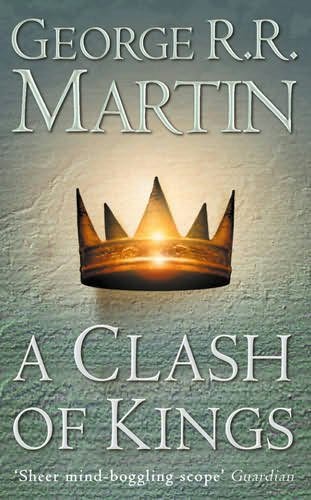
Finished game of thrones in February. Really enjoying this one, and right in the middle of it thus far. Enjoying everyones individual chapters, although Daenyrs bores the shit out of me from time to time.
Amazing series. I just finished A Feast for Crows (great book imo) and can't wait for the next one. Please make the September date, PLEASE
I'm reading
goddamn this thread really floundered.
ok the current readings are

I also read the newest edition of Elric by Michael Moorcock
if you like fantasy you should by this. if you like giant twisty epic fantasy, you should avoid this because it's stripped down, fuck your mother in her face destroy conventions and make tolkein fans cry into their cheerios.
i wrote a review/essay here on why everyone should purchase these.
http://tiny.cc/NUaSE
and also this

ok the current readings are

The midlife crisis of Cary Grant, the founding of the KGB and the Neapolitan years of mafioso Lucky Luciano are just three of the plot lines woven into this dense, playful and always surprising literary behemoth set mostly in the year of the book's title, at the height of the Cold War. Anchoring the tale with a relatively conventional narrative is a young Bolognese man named Robespierre (Pierre), who embarks on a transcontinental odyssey to find his father, Vittorio Capponi, a former Mussolini loyalist who left the Italian army to join the Communists in Yugoslavia. Meanwhile, Britain's spy agency MI6 approaches Cary Grant (who's in a career slump) with a bizarre proposal: the role of Yugoslavian leader Marshal Tito in a propaganda biopic. It seems impossible that the multitudinous names and story threads could converge, but, deliciously, they doin Yugoslavia, where Grant meets Tito, Pierre finds his father, and Luciano's driver Steve "Cement" Zollo tangles with the KGB, which is about to pull off a big hit. The latest joint effort (after the novel Q) from Wu Minga collective of five Italian intellectuals who named themselves "anonymous" in Mandarinoffers political commentarycumcomplicated escapism for the brainiac reader. (July)
I also read the newest edition of Elric by Michael Moorcock
if you like fantasy you should by this. if you like giant twisty epic fantasy, you should avoid this because it's stripped down, fuck your mother in her face destroy conventions and make tolkein fans cry into their cheerios.
i wrote a review/essay here on why everyone should purchase these.
http://tiny.cc/NUaSE
and also this

BenjaminBirdie said:
JUST GOT BACK HOME WITH IT!!!
I had had it in storage at my old digs for a long while and oh my lord I'd forgotten how amazing this book looks at this size.
And know I have something to pummel Zach Snyder with, should the need occur!
O I AM SO HAPPY!!
I WAS TAKING MINE OUT OF THE SLIP CASE FOR THE SECOND TIME AND MANAGED TO CAUSE A TINY RIP IN THE DUST JACKET
of all the absolute editions i have, this is the only one with a dust jacket
you goddamn bastards
CajoleJuice said:I've just been reading stuff for my sci-fi class. Yes, a sci-fi class. It fulfills a graduation requirement, so I had to take it. :lol
Right now, I'm reading:
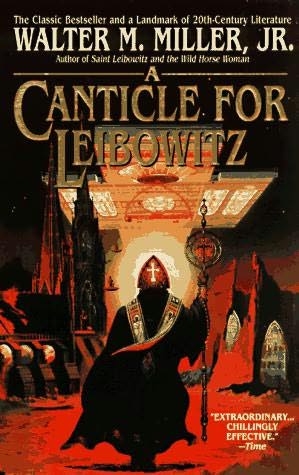
Fairly interesting. Deals with a post-apocalyptic distant future. I've only read the first of the three books that comprise the novel, and that one is from the viewpoint of a monk. Sounds boring, but it sets up the rest of the story well - at least I hope it does.
one of my absolute favorite novels of all time
Uncle said:I started reading The Prince of Nothing a while ago. I've only read about 200 pages of the first one, but I'm enjoying it thus far.
Just started the last book yesterday. Achamian
got owned. Hard. Even in the back cover text.
I also read Susan Faludi's the terror dream.
essentially everyone should be boxes of poop to the media.
great book, but the last two chapters, while interesting and providing great context, they seem somewhat out of place and i think would have been better if they were on their own.
i have susan jacoby's age of american unreason here somewhere, but i have the horrible sinking feeling from the get go that it's going to be like neil postman's dreadful shit book Amusing Ourselves to Death.
anyone who descries the rise of amateur culture in america over the past ten years is obviously not a porn fan.
essentially everyone should be boxes of poop to the media.
great book, but the last two chapters, while interesting and providing great context, they seem somewhat out of place and i think would have been better if they were on their own.
i have susan jacoby's age of american unreason here somewhere, but i have the horrible sinking feeling from the get go that it's going to be like neil postman's dreadful shit book Amusing Ourselves to Death.
anyone who descries the rise of amateur culture in america over the past ten years is obviously not a porn fan.
Mamesj said:Almost done with this:

.
just picked up grotesque which finally hit paper back plan to read it soon.
here's a horrifying thought. the movie rights were picked up shortly before american publication to be turned into a comedy about working class women trying to get by with geena davis.
no kidding. i was rather shocked at the direction, but not at all surprised
SpeedingUptoStop
will totally Facebook friend you! *giggle* *LOL*
i dunno if any of you are up to it (I wouldn't mind either way), but could someone please recommend me a book? I don't read as often as I should and I'm going on vacation next week and I'll need something good to chill out on the beach/plane with. I kinda prefer modern day tales, but futuristic sci fi is great as well, as long as I don't need to read entirely different book to understand it or a thesaurus to follow all the made up terminology (some books give me a headache like that). I dig Philip K Dick type sci fi, Hugh Laurie type humor (and in a smaller way, his way of writing thrillers) and if anybody could recommend a book as character driven and layered as The Watchmen, I'd be eternally grateful. I'm looking into the time traveler's wife right now, seems pretty good, but if you guys have any better ideas, I'd love to hear them.
ManaByte said:
Did you read "Brief History"? I just finished it, really enjoyed it, and was wondering if this was different enough to check out?
Right now I'm reading "A Life Decoded" by Venter. Next up? "Master and the Margarita," "End of Faith," "Audacity of Hope," "Elegant Universe," "Fabric of the Cosmos," "Yiddish Policeman's Union."
may i suggest spin?
i recently read it based on fnord chan's suggestion and i found it to be excellent. really good view of a really unique situation.
i recently read it based on fnord chan's suggestion and i found it to be excellent. really good view of a really unique situation.
One night in October when he was ten years old, Tyler Dupree stood in his back yard and watched the stars go out. They all flared into brilliance at once, then disappeared, replaced by a flat, empty black barrier. He and his best friends, Jason and Diane Lawton, had seen what became known as the Big Blackout. It would shape their lives.
The effect is worldwide. The sun is now a featureless disk--a heat source, rather than an astronomical object. The moon is gone, but tides remain. Not only have the world's artificial satellites fallen out of orbit, their recovered remains are pitted and aged, as though they'd been in space far longer than their known lifespans. As Tyler, Jason, and Diane grow up, space probe reveals a bizarre truth: The barrier is artificial, generated by huge alien artifacts. Time is passing faster outside the barrier than inside--more than a hundred million years per day on Earth. At this rate, the death throes of the sun are only about forty years in our future.
Jason, now a promising young scientist, devotes his life to working against this slow-moving apocalypse. Diane throws herself into hedonism, marrying a sinister cult leader who's forged a new religion out of the fears of the masses.
Earth sends terraforming machines to Mars to let the onrush of time do its work, turning the planet green. Next they send humans...and immediately get back an emissary with thousands of years of stories to tell about the settling of Mars. Then Earth's probes reveal that an identical barrier has appeared around Mars. Jason, desperate, seeds near space with self-replicating machines that will scatter copies of themselves outward from the sun--and report back on what they find.
Life on Earth is about to get much, much stranger.
SpeedingUptoStop
will totally Facebook friend you! *giggle* *LOL*
doesn't sound too bad. Doesn't seem like that long of a read either. Thanks!Eric P said:may i suggest spin?
i recently read it based on fnord chan's suggestion and i found it to be excellent. really good view of a really unique situation.
AndersTheSwede
Member
I usually don't put much stock in jacket quotes, but in this case they were all correct. This book really is a "mad tornado of words." The prose is so off the wall eccentric I smile the whole time reading it.


Wendell's Dream #2
He is in a glass bubble, descending into a purple sea exploding with green fish that swirl around the sphere in a seething fire. The surface is far above, but the light does not diminish; no, all is washed in lavender here, huge crags of coral glisten with crustaceans, lorded over by knobby sharks and vast expanses of open water where humpbacks hover and sing the blues. He passes derelict ships still sailing on submarine currents, older boats, the ribs of triremes, snagged on crops of rock. Golden spider crabs seventeen feet across stilt around a swarm of clicking young, they dine on the carcass of a sperm whale large enough to be a landform, a great hill overgrown with teeming greens. At last, Wendell settles on the ridge of a blinding abyss, where Manuel lives inside the giant mouth of a fossilized squid. Manuel has learned to breath water, his heart pushes brine through his veins, the movement of the sea along the ocean floor passes through his head. He approaches the bubble, puts his hands upon the surface, presses his forehead against it, writes with a curved finger: I'm sorry. And Wendell puts his lips against the cold curve over Manuel's eyes, moves across his beloved's forehead, his limbs collapse against the glass, just trying to get closer; but it is no use. Above him, the whales are gathering, preparing for migration: they know of a stretch of ocean that is warmer and brighter than this place, where the current teems with sweet krill and there are no hunters in rusting ships trying to kill them. But it is thousands of miles away. It could take years to get there.
CajoleJuice
Member
It turned out really damn good. Depressing as fuck, but great.Eric P said:one of my absolute favorite novels of all time
I'm reading this now:

Future PhaZe
Member

Just started. No opinion thus far.
CajoleJuice said:It turned out really damn good. Depressing as fuck, but great.
I'm reading this now:
i thought it was ultimately uplifting
because god hadn't abandoned us
though it did like how each chapter closed
with the death of the character we'd been following that chapter
edit: i've never been able to get into dune. i tried many times
Urban Scholar said:I just started reading Shogun and I've been on a big literary adventure kick. So I'm also reading Outlaws of the Marsh
Be sure to read all of James Clavell's Asia series. I read the series out of order: Shogun -> Gai-Jin -> Taipan -> Noble House -> King Rat -> Whirlwind. Noble House is by far my favorite and I still re-read it at least once a year.
I'm reading Cloud of Sparrows on my lunch breaks and I like the characters and story so far.

CajoleJuice
Member
Yeah, I can see it that way too. Either way, it was an affecting book.Eric P said:i thought it was ultimately uplifting
because god hadn't abandoned us
aparisi2274
Member
I just finished:

and am now about to start:


and am now about to start:

Guileless
Temp Banned for Remedial Purposes

"Talbott, deputy secretary of state in the Clinton administration, makes an eloquent but predictable appeal for progress toward global governance under the auspices of the United Nations, which he sees as humanity's destined path since tribes began forming states, and since states have sought an alternative to international anarchy."
Disappointingly conventional to this point, about halfway through. Reads kind of like a Western Civ textbook with some Foreign Affairs articles mixed in. He has had an interesting life though and the personal anecdotes help make it a better read.

I read recently that this book and Grant's memoirs are two of the few autobiographies worth reading, as they tend to be dull and pointless. It is interesting so far; I am up to the Suez Crisis. He is very critical of how abruptly Britain abandoned its mandate to rule Palestine after World War II.
I finally finished Rendezvous with Rama, which I felt was pretty good. A little underwhelmed by the ending, but Clarke's ability to bend my imagination to try and comprehend the size of Rama is staggering.

I started reading this today:

Just past the 20 page mark, and I think I will like it. After this one I think I need a bit of a break from the galactic war books. I read Ender's Game a month or two ago and want something a little different. Thinking of starting Speaker for the Dead, also by Orson Scott Card.

I started reading this today:

Just past the 20 page mark, and I think I will like it. After this one I think I need a bit of a break from the galactic war books. I read Ender's Game a month or two ago and want something a little different. Thinking of starting Speaker for the Dead, also by Orson Scott Card.
I'm a little over half through The Satanic Verses by Salman Rushdie, and it's really good. Much better than Fear, but not as great as Midnight's Children (but then what is?) It's a big hotchpotch of profound and silly, funny and tragic, deep and superficial, and with Rushdie's usual amazing language. He plays with lots of figures from both Islam, Hinduism and Christianity, and does so very freely - still very shocking to me how it could turn into a fatwa against him. Have anyone read his latest books, by the way? I'm a bit hesitant to read them because I have this stupid thought that he might have peaked with ST and MC... I'm hopefully wrong.
Eric P said:goddamn this thread really floundered.
ok the current readings are

Goddamn, that book sounds great.


